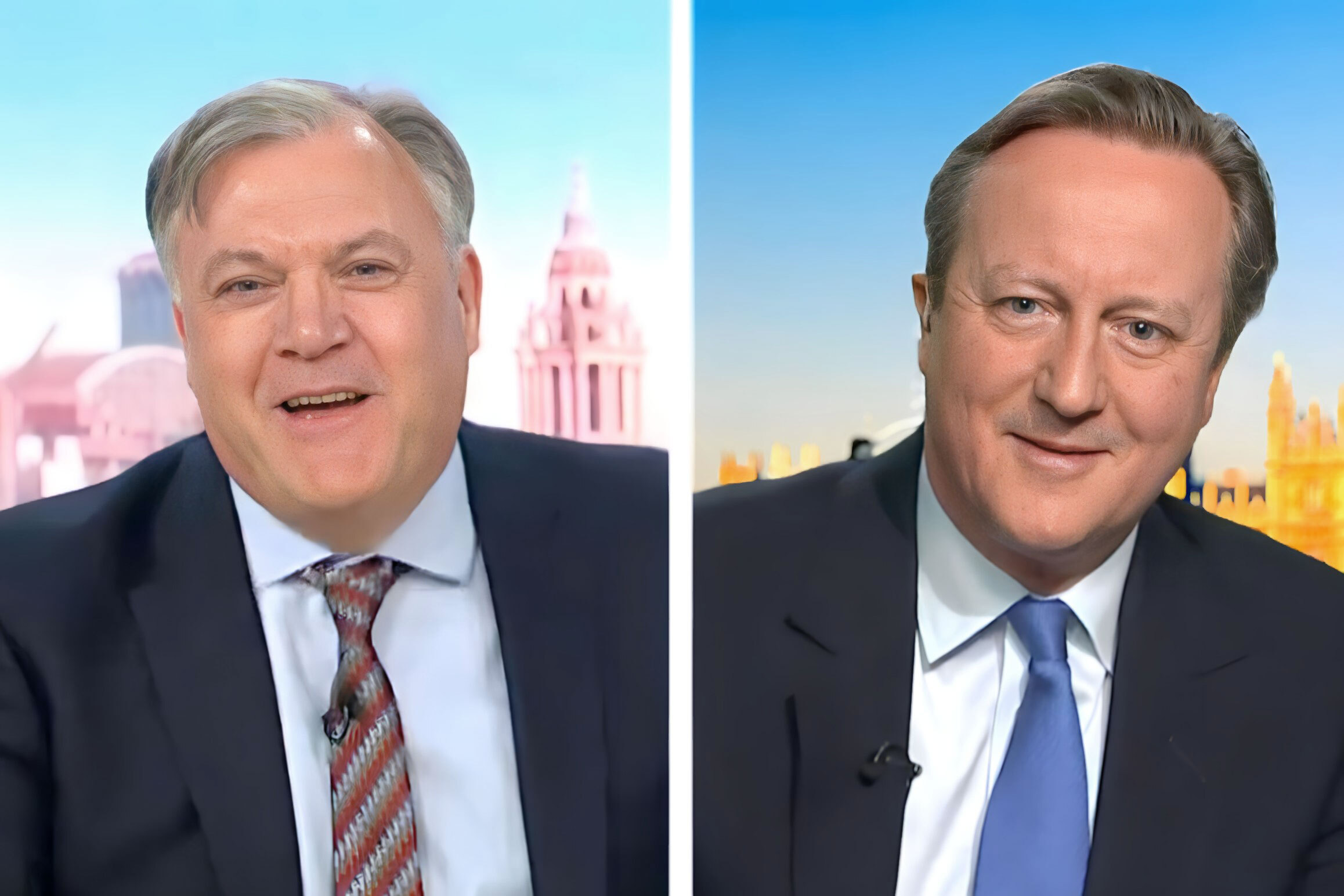Could Lord Cameron remain as Foreign Secretary under a Labour government? It might seem like an outlandish question but to Ed Balls, at least, it is sufficiently plausible that he was happy to put it to the man himself on a breakfast show yesterday.
Balls was half-joking. On the other hand, George Osborne, who co-hosts a podcast with Balls, was entirely serious when he previously described how Cameron has enhanced Britain’s profile on the world stage since taking on the Foreign brief. “Cameron is acting like the British prime minister,” Osborne said on a recent episode of his podcast Political Currency, “and he’s getting the kind of meetings that no normal British foreign secretary would get.”
That much is true. Cameron — as a former prime minister — is certainly more of a pull than James Cleverly. Osborne seems to fancy him to stay in the job under Keir Starmer; Balls doesn’t appear to be far off thinking the same. Why? Because all three are more closely aligned on almost every major issue than they are with the millions of people voting for their respective parties.
After all, in 2014 it was Balls who promised to cut unprotected department spending every year until the deficit was eliminated. That promise of austerity-max was more fiscally conservative than anything under the Johnson premiership (frequently described by centrist pundits as the most Right-wing government ever). Indeed, for much of his five years as shadow chancellor, Balls tried his hardest to get Ed Miliband to fully embrace austerity.
On issue after issue, it’s hard to see precisely where Cameron departs from Balls, Osborne and even Rachel Reeves. And where they are at odds (Reeves, for example, appears to think the state should play a larger role in crafting markets), the gulf is not so vast as to suggest they should be in different parties. All four supported remaining in the EU. All four have no desire to raise tax on the ultra-rich. All four have no vision of how the state might behave in a fundamentally different way. All four seem to believe that fiscal policy should essentially be decided by the OBR (they all share a fondness for government by quango).
But it’s on foreign policy where the uniparty is strongest, and it is that which makes Balls’s joke so feasible. Reading the list of foreign secretaries over the last 40 years, it’s hard, with the exception of Robin Cook, to discern much disagreement. Here, more than any other area of policy, dissent is not permitted; deviation from the established way of doing things is immediately declared “unelectable” — no matter how disastrous that established way has proven. Sure, Trident might cost £205 billion, but a cheaper alternative built in the UK is unrealistic. The same is true regarding our relationship with Washington or criticising Israel. And then we wonder why the same mistakes keep happening.
After all, Cameron was PM when Britain overthrew Gaddafi — pound-for-pound as stupid a blunder as Iraq. Even Barack Obama labelled the intervention a “shitshow”. That escapade, which enjoyed cross-party support at the time, was carried out with no proper intelligence, drifted into the goal of regime change, and shirked its duty to help reconstruct the country thereafter. That isn’t the condemnation of anti-war activists, but the sober conclusion of the Foreign Affairs Select Committee in 2016.
How is it possible that a PM responsible for such a disaster, and criticised by his former colleagues in the Commons, is suddenly regarded as peerless when it comes to foreign affairs? More than anything else, Balls and Osborne’s adoration for Cameron is the result of all three coming from the same political and ideological circles. Both Balls and Cameron studied PPE at Oxford, while Osborne read History. Prior to entering Westminster, none of them had worked in a job not directly linked to politics or the media.
It is no surprise, then, that they are all closer to one another — on PFI, public ownership, regulating the City and the EU — than they are to the median voter. For all three the actual electorate is an afterthought — a diversity of views only acceptable as long as it is sufficiently impotent to be mocked. For a short while Brexit changed that. But Balls’s impish question suggests the old days are back.











Join the discussion
Join like minded readers that support our journalism by becoming a paid subscriber
To join the discussion in the comments, become a paid subscriber.
Join like minded readers that support our journalism, read unlimited articles and enjoy other subscriber-only benefits.
Subscribe